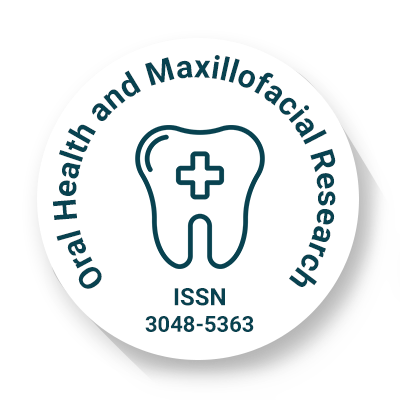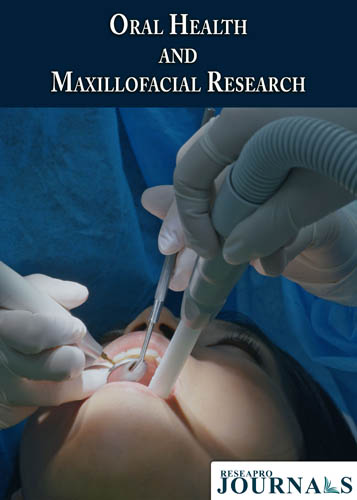
Oral Health and Maxillofacial Research
OPEN ACCESS
ISSN: 3048-5363

OPEN ACCESS
ISSN: 3048-5363

Department of Dental Surgery, Kerala University of Health Sciences, Thrissur, India
The emergence of antimicrobial resistance (AMR) has significantly compromised the management of dental and orofacial infections, including periodontitis, peri-implantitis, dental caries, and oral candidiasis. The overuse of antibiotics in dental practice has contributed to the rise of multidrug-resistant pathogens, necessitating alternative antimicrobial strategies. Plant-derived nanoparticles, synthesized using medicinal plant extracts rich in bioactive compounds such as flavonoids, terpenoids, and phenolic acids, have demonstrated promising antimicrobial activity and biocompatibility. Green synthesis methods allow the fabrication of metal nanoparticles without hazardous reagents, improving their safety and ecological profile. These nanoparticles exert antimicrobial effects through multiple mechanisms, including disruption of microbial biofilms, induction of reactive oxygen species (ROS), interference with DNA replication, and compromise of microbial membrane integrity. Their broad-spectrum activity has been validated in preclinical studies targeting oral pathogens such as Streptococcus mutans, Porphyromonas gingivalis, and Candida albicans. Applications in dentistry include their incorporation into periodontal gels, implant coatings, and anticariogenic agents. In vitro studies on oral cell lines and limited in vivo models report minimal cytotoxic effects, supporting their potential for clinical use. However, the lack of standardized synthesis protocols, formulation stability data, and long-term toxicity assessments pose barriers to translation. Regulatory pathways for herbal nanotherapeutics remain underdeveloped, and well-designed randomized clinical trials are required to evaluate safety, efficacy, and pharmacokinetic behavior in humans. Future efforts should focus on optimizing nanoparticle formulation for dental applications, conducting comparative studies with existing antimicrobials, and developing delivery systems tailored to intraoral use. Plant-based nanoparticles represent a potential adjunct or alternative to conventional antimicrobial agents in dental care, offering a strategy to manage infections without exacerbating resistance. Their successful clinical integration will depend on addressing current limitations through collaborative translational research and regulatory support.
Department of Dental Surgery, Kerala University of Health Sciences, Thrissur, India